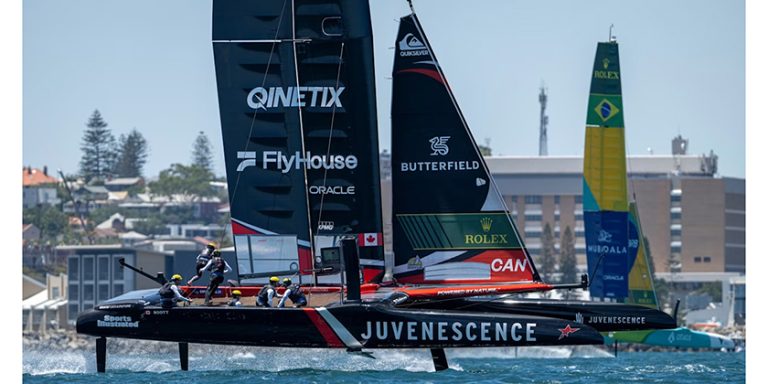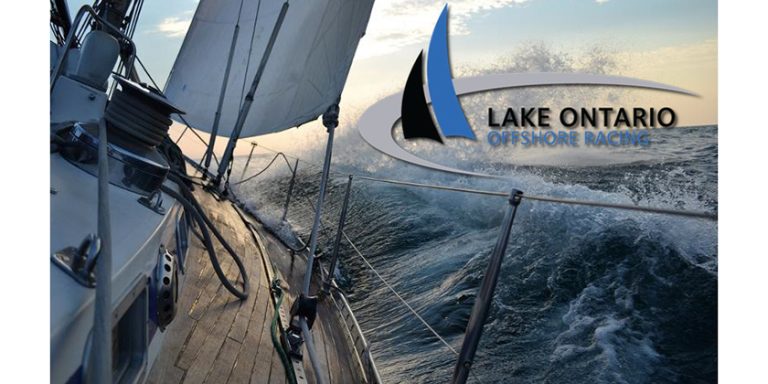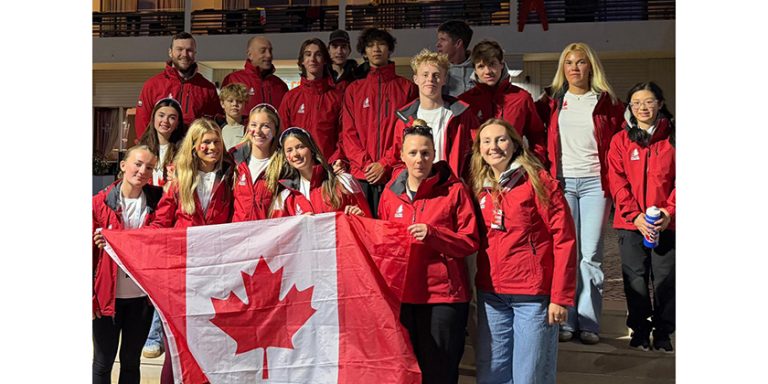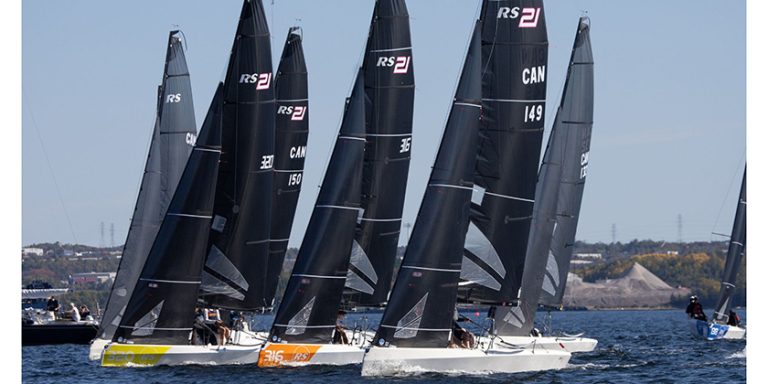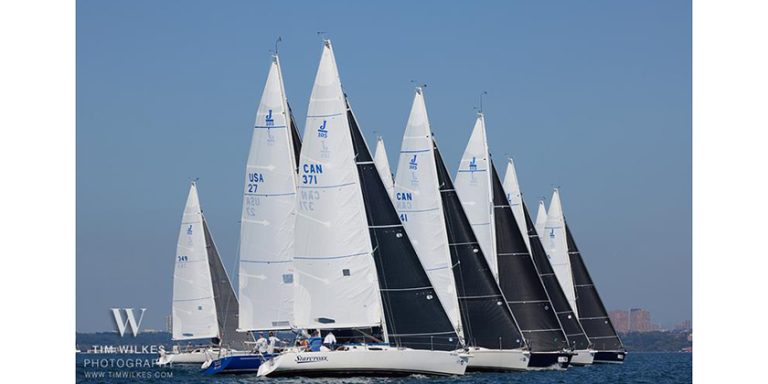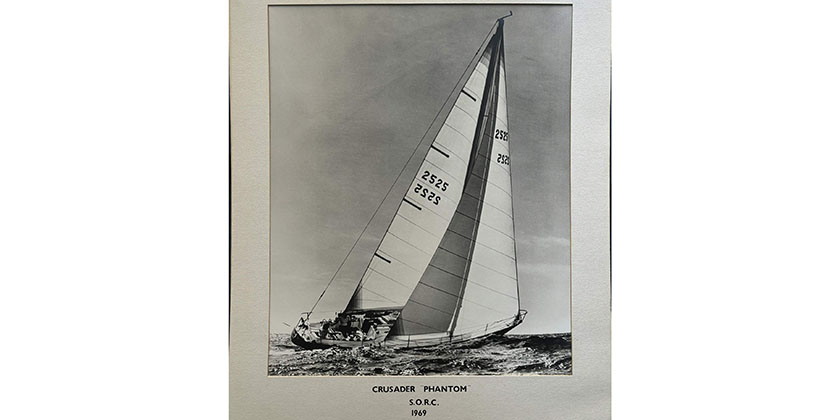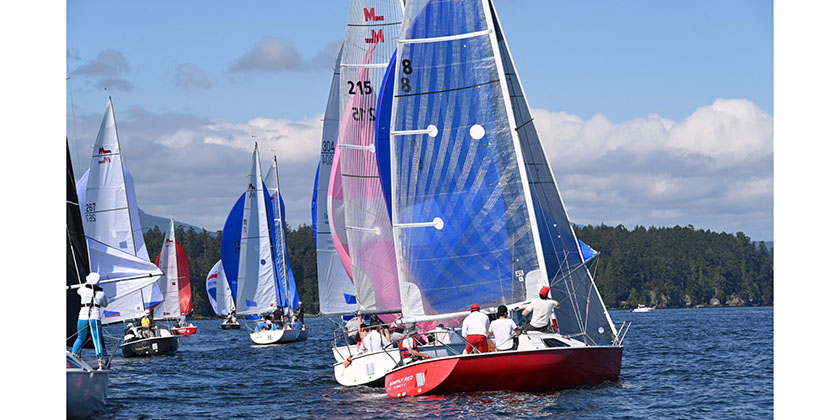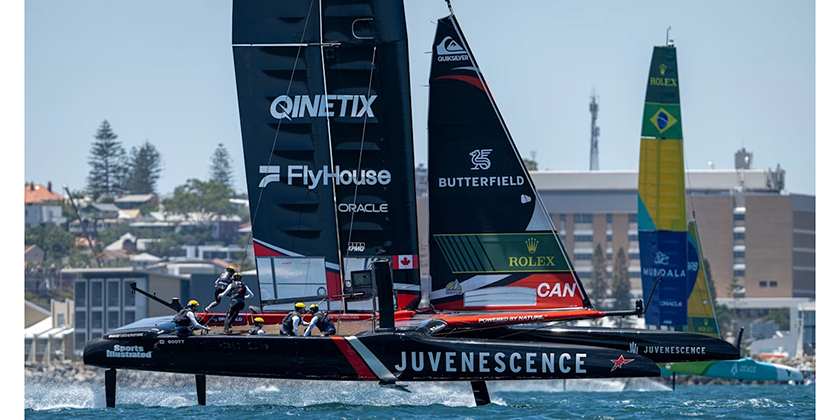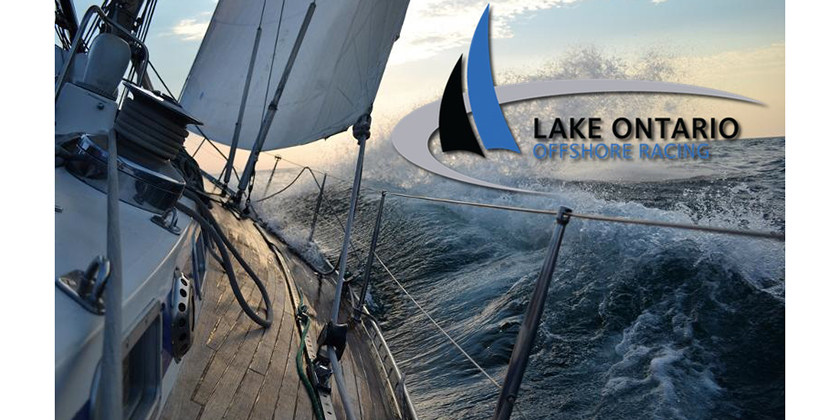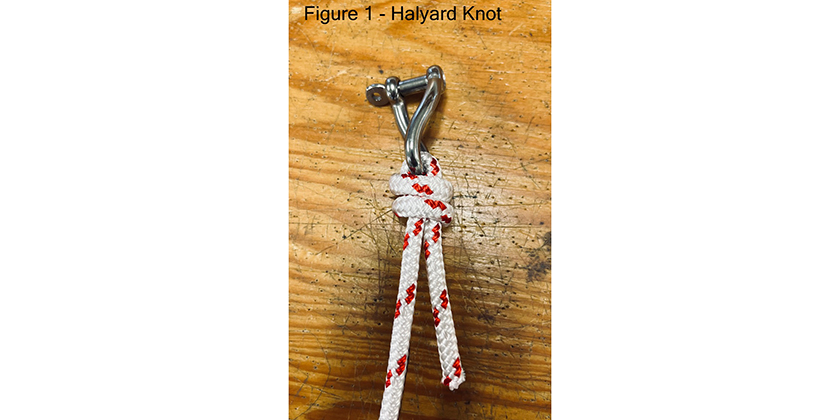Clipper Round the World Yacht Race – Challenges of upwind sailing
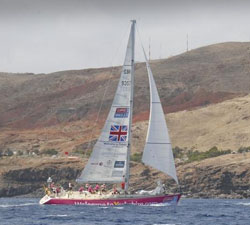
Clipper Round the World Yacht Race second race in leg one, which started in Madeira and will finish in Rio De Janeiro, is currently underway.
Today brings with it a change from downwind sailing to upwind beating as the fleet continues to head south towards the finish line at the foot of Rio de Janeiro’s Sugarloaf Mountain. For the majority of the teams it appears that they have made it through the Doldrums relatively painlessly as spinnakers are now swapped for Yankee headsails.
'Beating to windward in squally conditions means hatches closed all round and a very uncomfortable sweaty life below decks,' explains Welcome to Yorkshire’s skipper, Rupert Dean. 'For the mothers doing cooking duties it is particularly brutal and we are really having to look out for each other to ensure all are adequately hydrated and are safe from heatstroke.
'The wind continues to blow strongly and has gone from a south westerly direction to southerly. Consequently we've tacked and are steering best course to windward to obtain optimal VMG (Velocity Made Good) towards Cabo Frio, whilst swapping reefs and headsails to match. A local depression in the area has made the belt of southerly winds particularly thick and strong, so it will be a while yet before we feel the full benefit of the south easterly trade winds.'
Whilst the skipper of Welcome to Yorkshire bemoans the disadvantages of sailing upwind in hot sticky conditions, it appears that skipper Richard Hewson on board Gold Coast Australia is willing to accept that life will be a little uncomfortable especially if it means extra speed towards their destination.
'The benefit of sailing further south means we will be able to sail lower and faster for the rest of our trip to Rio than the other boats,' explains the Tasmanian skipper. 'We are currently steaming along at about 10 knots, slightly cracked away from the wind as it continues to lift on our new rhumb line to Rio.
'The only problem with our current course and speed is that it’s very wet. Rather than the normal seven to eight knots to windward, we are cracked away slightly to go faster, but still have the oncoming sea and swell to contend with, as we just found out when we ploughed straight through a wave like a submarine. One of the crew’s lifejacket inflated, and water poured over the deck, almost filling the cockpit, and straight down the vent that sits above the skipper’s bunk and onto my mattress and bedding! But it’s worth the sacrifice for the extra speed.'
After more than a week of level downwind sailing, the sudden change to beating upwind once more has come as a shock to many according to Singapore’s skipper, Ben Bowley.
'So I think we had all forgotten how much of a strain it is physically (and therefore mentally) trying to work a boat to windward!' he exclaims. 'The simple action of disentangling oneself from the windward bunk, getting dressed, eating, using the heads and getting on deck for watch requires a Herculean effort!
'The wind had been fairly fresh and the challenges of living life at a 25 degree angle of heel are starting to wear on us all. This is compounded by the occasional pot hole in the sea, a large wave that the boat crashes off with a bone jarring, rattling, sickening smash. It is quite amazing the outrageous poses that people strike in an effort to brace against the heel of the yacht, something like martial arts moves frozen in time and very strength sapping!
'Our repair to the steering is also feeling the strain. Yesterday, during one of our hourly checks, it became apparent that things were starting to open up again and a good part of the afternoon was spent trying to shore up the repair. The longer we can nurse the system the better and it would be fantastic if we could keep it running for another couple of thousand miles at least. Emergency steering is no fun for anyone and we are now determined to at least equal our Race1 position, if not better it, steering failure or not!'
Juan Coetzer, skipper of Geraldton Western Australia, echoes the others skippers’ descriptions of the new conditions as his team also emerges from the Doldrums.
'We’ve been sailing close hauled for the last day in what feels like a washing machine as the sea state has been a little confused,' explains Juan. 'Up on deck it has been wet and windy, with rain squalls coming through now and then. Below decks, it is hot and sweaty but the crew are managing well in these trying conditions, their spirits are still high and eager to push on.'
Equally keen to push on in the challenging conditions are the crew on board Scottish entry, Edinburgh Inspiring Capital, according to the team’s skipper Gordon Reid.
'Sailing upwind again in the stronger winds makes life below decks more of a challenge, but despite the tougher conditions the race team on Edinburgh Inspiring Capital are in good spirits and still smiling. Our position has been eroded in the last 24 hours but we will once more drive to the top in the yacht which has again, on Race 2, recorded the fastest 12-hour run of the fleet.
'Round the World crew member Nick Barclay, aka ‘Scarlet’, is proving a hot number on the wheel,' says Gordon. 'And he says, ‘Hello to the folks back home!’ as he drives our boat fast towards Rio.'
As the heavy, cloud laden skies of the Doldrums start to disappear another advantage of leaving the ITCZ behind becomes apparent as crew member Andrew Priest on board New York explains.
'Ocean sailing has its moments. Big seas, whistling wind, humid hot air, wind holes, New York has seen it all over the last few weeks since we left the English Channel and headed south through the Bay of Biscay and out into the North Atlantic.
'For much of the time we have had to rely on our dimly lit compass to guide our way at night. The Doldrums saw heavy skies throughout with cloud cover blotting out stars and the moon meaning there was no other way to helm other than by compass. Tonight though, we were treated to a night sky full of stars, with no cloud cover and with the waning moon not set to rise until the early hours.
'For the helm this means it is possible to pick a guiding star or several and steer towards them with only the occasional glance at the compass to check we are still on course. In the ocean our view of the stars is not blighted by city lights and the Milky Way was clearly visible, stretching like a plume of aircraft exhaust across the middle of the night sky. With Stephan (Larson) on board, who has spent years studying the sky, it meant we were treated to a tour of the stars including the brighter planets led by Jupiter.
'As we now have the southern trade winds our course to Rio will be a steady one, accelerating from a beat to a reach as the wind moves eastwards and putting us into a long drag race with the Clipper fleet to our west to the finish line.'
For the skipper of De Lage Landen, the last 24 hours have been a busy period of sail change after sail change as both weather and luck have played their part in deciding the sail configuration of the Dutch entry.
'After 40 hours with our heavyweight kite up we peeled to our medium weight only for some small holes to appear in it,' explains the team’s skipper, Mat Booth. 'So back down it came and up went the trusty heavyweight again. An hour after the spinnaker was set, in came a squall, down came the spinnaker and so began the theme of the day!
'With the wind now steady and coming from the south west we were beating to windward and making a good southerly course to boot. An hour later the wind had eased sufficiently for us to carry our Yankee 1 so another sail change evolution began.
'Guess what happened next? Yes, more wind, so down came the number 1 and up went the number 2!
'All credit to my crew, they have worked non-stop to keep this boat moving and continue to impress me on a daily basis,' says Mat. 'So the big question for us now is, are we through? Was our Doldrums experience a mere three squalls and under an hour of being becalmed? Time will tell, all the weather information is telling me we are but you never know – fingers are firmly crossed!'
Hoping that last night was also their final period in the Doldrums is Derry-Londonderry’s skipper, Mark Light.
'We are still making good progress south but through the night we definitely experienced the Doldrums,' says Mark.
'With lots of very dark, ominous looking clouds, not heavy but persistent rainfall and the barometer showing an even further drop in pressure. The crew are at the moment all prepared and ready to drop the spinnaker before Mother Nature decides to drop it for us (in many pieces!). Everything is set and the crew are briefed on their stations so that we can drop the sail quickly, efficiently and, most of all, safely.
'We have a constant watch on the radar looking for dark squalls that could seriously modify our sail plan involuntarily. I think within 36 hours we could start to see some upwind sailing as we transit into some south easterly trade wind conditions.'
As another milestone of Race 2 is reached in the form of the south east trade winds, another looms on the horizon as the teams prepare to cross the Equator and a visit to the court of King Neptune.
Positions at 0900 UTC, Sunday 21 August
Boat / DTF* / DTL**
1 Singapore /2095nm
2 Gold Coast Australia / 2098nm / +3nm
3 Welcome to Yorkshire /2098nm / +3nm
4 Derry-Londonderry / 2198nm / +103nm
5 Qingdao/2226nm / +131nm
6 De Lage Landen / 2228nm / +131nm
7 New York / 2234nm / +139nm
8 Visit Finland / 2271nm / +176nm
9 Edinburgh Inspiring Capital / 2312nm / +217nm
10 Geraldton Western Australia / 2392nm / +297nm
DTF* = Distance to Finish, DTL** = Distance to Leader. Full positions are updated every three hours and can be found here.
Clipper Round the World Yacht Race website
Photo Credit: On Edition Photography

